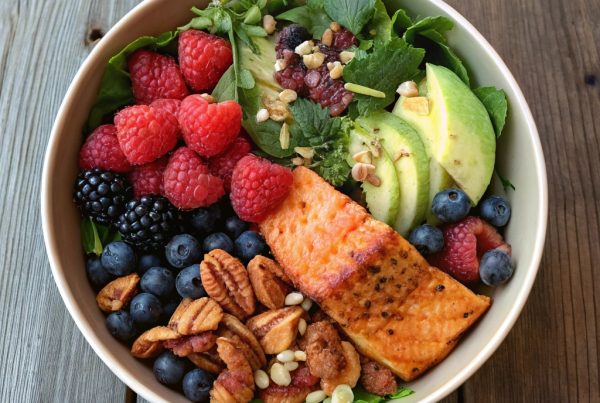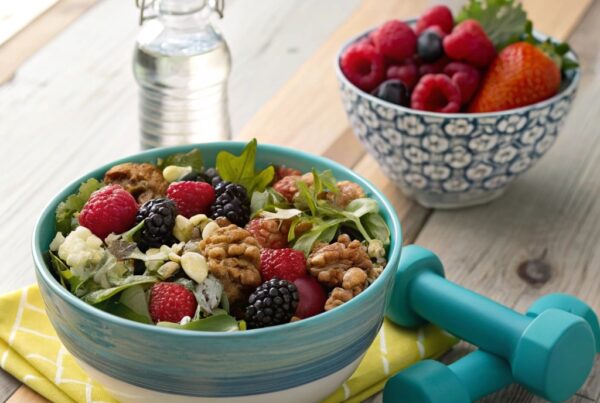Are you pushing yourself to the limit, training harder, competing fiercer? But are you fueling your body for peak performance?
We often focus on protein and carbs, but there’s a critical piece of the puzzle that’s frequently overlooked: inflammation. Constant high-intensity exercise creates oxidative stress, leading to damage within the body.
It’s not just about what you eat training; it’s about building a foundation for sustained strength and recovery.
Imagine consistently performing at your best, recovering faster between sessions, and minimizing those nagging aches and pains.
Lets dive into how strategically incorporating antioxidant-rich foods can become your secret weapon unlocking a new level of athletic potential.
Athletes Fuel Optimization
It’s easy to think fueling performance means just chugging protein shakes and grabbing quick energy bars but that’s often setting you up for a crash and long-term issues.
Those immediate boosts might feel great during training, yet they can actually be hindering your recovery and overall strength gains.
Consider the elite athletes who consistently perform at their peak; their diets aren’t built around fleeting energy spikes.
The key lies in understanding how food directly impacts inflammation and cellular repair essentially, optimizing fuel for sustained performance.
Every sugary snack or processed bar represents a missed opportunity to provide your body with the nutrients it needs to rebuild and adapt.
But here’s what most sports nutrition experts won’t emphasize: maximizing athletic potential starts from within, through strategic food choices designed to combat inflammation.
Let’s explore how you can transform your diet into a powerful performance enhancer.
Inflammations Impact on Athletes
True, inflammation is a silent saboteur for athletes. It’s something many don’t fully grasp, but it plays a massive role in how your body recovers and performs after intense training or competition.
Think about what happens when you push yourself hard. Muscle damage occurs, creating tiny tears in the muscle fibers. This is perfectly normal; it’s actually *how* muscles grow stronger! However, this damage also triggers an inflammatory response.
This isn’t necessarily a bad thing; inflammation is part of the healing process. But when it becomes chronic or excessive, that’s where problems arise. High levels of inflammation can hinder muscle repair, increase soreness, and even slow down your overall recovery time. You might feel sluggish and less ready for your next workout.
Furthermore, persistent inflammation can impact joint health. The constant irritation caused by elevated inflammatory markers can contribute to pain and stiffness in joints, potentially increasing the risk of injury, something you certainly want to avoid!
Antioxidants The Body’s Defense
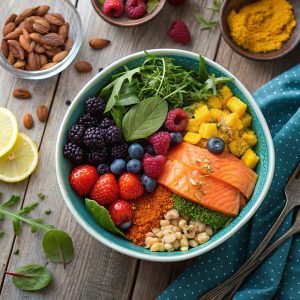 Many athletes understand that their bodies need a boost to perform at their best. And one key element often overlooked is antioxidants, the body’s defense against damage.
Many athletes understand that their bodies need a boost to perform at their best. And one key element often overlooked is antioxidants, the body’s defense against damage.
Think about it: intense training puts your muscles under tremendous stress, generating free radicals that can cause inflammation and cellular breakdown.
These free radicals are like tiny attackers, damaging cells and slowing recovery. Antioxidants act as the body’s first responders, neutralizing these harmful molecules before they can do serious damage.
Antioxidants such as vitamins C and E, found in colorful fruits and vegetables help protect your tissues from oxidative stress. This means improved muscle repair, reduced soreness, and faster recovery times after grueling workouts.
Essentially, antioxidants are like a shield for your body’s engine, helping you push harder, recover quicker, and ultimately achieve peak performance.
Key Nutrients for Recovery
Remember recovery is key when it comes to performance. And a big part of that is fueling your body correctly” specifically through nutrients that fight inflammation and boost your repair process.
Let’s talk about some key nutrients you should be focusing on. Antioxidants are hugely important for athletes because they combat those nasty free radicals produced during intense training.
Think of it like this: when you push your body hard, it creates little bits of damage. Antioxidants help clean up that mess and protect your cells from further harm. Foods rich in antioxidants include berries (blueberries, strawberries), leafy greens (spinach, kale), and dark chocolate. Yes, a little bit can be beneficial!
Beyond just antioxidants, incorporating foods with anti-inflammatory properties is crucial for faster recovery.
Fatty fish like salmon are packed with omega-3 fatty acids which have powerful anti-inflammatory effects. Also consider turmeric (a key ingredient in curry) and ginger; these spices contain compounds that can significantly reduce inflammation.
So, by strategically incorporating these nutrient-rich foods into your diet, you’re essentially giving your body the tools it needs to recover faster, rebuild stronger, and ultimately, perform at its best.
Beyond Vitamins: Phytonutrients Role
Beyond vitamins: phytonutrients role is about recognizing that food offers so much more than just basic nutrients. You need to understand how plant compounds”phytonutrients”can dramatically impact your performance.
Think of it this way vitamins are essential, yes, but they’re like the bricks in a building. Phytonutrients are the mortar and the design that holds everything together and makes it strong.
These compounds”found in colorful fruits, vegetables, herbs, and spices”are packed with antioxidants. Antioxidants combat free radicals, which are unstable molecules that can damage cells and contribute to inflammation.
Inflammation is a huge factor when it comes to athletic performance. It slows recovery, increases pain, and hinders your ability to train effectively. And phytonutrients can significantly reduce this internal fire.
For example, turmeric contains curcumin, a powerful anti-inflammatory that’s been shown to accelerate muscle repair after exercise. Or blueberries are loaded with anthocyanins; these compounds help protect against cellular damage and boost endurance.
So, while meeting your daily vitamin needs is important, you should also be actively seeking out foods rich in phytonutrients. You’re not just fueling your body; you’re optimizing it for peak performance.
Strategic Food Choices for Intensity
Imagine fueling your body with foods that directly support peak performance. It’s about more than just calories; it’s about strategically choosing what you eat to minimize inflammation and maximize energy levels during intense training or competition.
Think vibrant fruits and vegetables that are packed with antioxidants, which help fight off the damage caused by exercise-induced stress on your body.
Berries like blueberries and strawberries are fantastic choices. They’re loaded with compounds that can reduce muscle soreness and speed up recovery after a tough workout. Similarly, leafy greens spinach and kale provide vital nutrients to repair tissue damage.
You should also focus on incorporating healthy fats into your diet”these contribute to sustained energy release during prolonged exertion.
Foods like avocados and nuts offer essential fatty acids that support efficient fuel utilization, helping you go the distance without hitting a wall. These choices aren’t just about feeling good; they directly impact how well your body performs when it matters most.
Essentially, strategic food choices”focused on antioxidant-rich, anti-inflammatory foods”can be a game changer for athletic performance, helping you push harder and recover faster.
Gut Health and Inflammation Control
With optimal performance at the forefront of any athlete’s goals, it’s becoming increasingly clear that gut health plays a massive role. You see, inflammation is often linked to poor digestion and an unhealthy microbiome and this can seriously hamper your ability to train effectively and recover properly.
A compromised gut lining allows for increased permeability, commonly known as œleaky gut. This means unwanted substances, like toxins and inflammatory compounds, can slip through and trigger a systemic response throughout the body.
This heightened inflammation can directly impact muscle repair after intense workouts, slowing down recovery times and increasing the risk of injury. Furthermore, it can affect energy levels fueling fatigue and reducing your ability to push yourself during training sessions.
Maintaining a diverse and thriving gut microbiome is key for controlling this inflammation. You see, certain bacteria produce short-chain fatty acids (SCFAs) that have powerful anti-inflammatory effects.
A diet rich in prebiotic foods think fruits, vegetables, and whole grains fuels these beneficial bacteria, supporting a balanced gut environment and helping to keep inflammatory responses at bay.
Timing Your Fuel Pre & Post
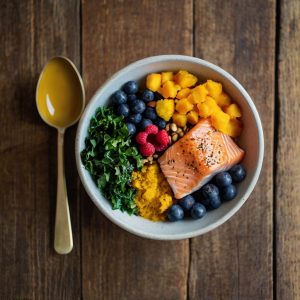 Even before a workout, fueling your body right is key. Think of it as prepping for peak performance.
Even before a workout, fueling your body right is key. Think of it as prepping for peak performance.
You want to prime those muscles with antioxidants that help reduce inflammation and speed up recovery.
A handful of berries or some spinach are great choices. These foods are packed with nutrients that can boost your energy levels before you even start training. It’s about giving your body the building blocks it needs to perform at its best.
Right after exercise, timing is crucial. This is when inflammation is highest and antioxidants are needed most.
A smoothie with fruits like bananas and mangoes or a protein shake can help repair muscle tissue and reduce soreness. These foods provide the nutrients your body needs to bounce back quickly.
So, fueling before and after training” that’s how you optimize performance and recovery.
Hydrations Role in Reduction
After hydration plays a crucial role in reducing inflammation particularly for athletes. Think about it: your body is constantly battling oxidative stress during intense training.
Water helps flush out metabolic byproducts that contribute to inflammation, like lactic acid and free radicals. When you’re dehydrated, these toxins build up, irritating tissues and hindering recovery.
For example, consider a long-distance runner: the sheer volume of sweat lost means significant fluid depletion. This dehydration increases muscle soreness and elevated inflammatory markers, slowing down healing time. Similarly, a weightlifter experiencing intense exertion will produce heat, which needs to be dissipated through sweating; without adequate hydration, this process is compromised, leading to greater inflammation within muscles.
Furthermore, proper hydration supports optimal cellular function including those involved in the body’s natural defense against oxidative damage.
Maintaining sufficient fluid levels ensures that antioxidant enzymes operate efficiently, neutralizing harmful free radicals before they can cause widespread cell damage. It’s a vital component of your body’s internal repair system and helps to keep inflammation at bay particularly when you are pushing yourself physically.
Dark Reds & Purples Power Up
Think about fueling your body for peak performance rather than just grabbing a quick snack. You need to understand how food impacts inflammation and recovery, especially when you’re pushing yourself hard during training. And that’s where dark reds and purples come in!
These colours are packed with antioxidants, which directly combat inflammation. When you exercise intensely, your body creates damaging free radicals molecules that can contribute to muscle soreness and hinder recovery.
Foods like blueberries, cherries, blackberries, beets, red grapes, purple sweet potatoes, and even dark leafy greens boast high levels of anthocyanins, the pigments responsible for those vibrant colours. These compounds work by neutralizing these free radicals, helping reduce oxidative stress and promoting faster healing. It’s a natural way to support your body’s repair processes after intense activity.
Focusing on foods with deep red or purple hues isn’t just about immediate benefits; it’s about building resilience. You’re providing your body with the tools it needs to handle future workouts effectively and minimize long-term damage.
Avoiding Inflammatory Foods Know Them
Avoiding inflammatory foods know them means recognizing the types of food that can contribute to inflammation in your body. It’s not about completely eliminating treats, but rather understanding which ones might be triggering unwanted reactions for you.
You should be aware of common culprits like processed meats, sugary drinks and excessive amounts of refined carbohydrates. These foods often contain high levels of added sugars and unhealthy fats that can promote inflammation.
For instance, regularly consuming fried foods or pastries can contribute to increased inflammation. Similarly, relying heavily on white bread, pasta, and rice which are quickly broken down into sugar can also have a negative impact. Understanding these basics is the first step in fueling your performance effectively.
Personalized Nutrition for Peak Performance
Now, optimizing your diet around antioxidants and anti-inflammatory foods can really fuel your performance. It’s about understanding what your body needs at this specific time.
Think about it” intense training creates inflammation in the muscles. Antioxidants help combat that damage.
Foods rich in antioxidants, like berries and leafy greens, can reduce muscle soreness after a tough workout. They’re essentially helping to repair those tiny tears in your muscle fibers, speeding up recovery time!
Personalization is key here” what works for one athlete might not work for another. Consider your training intensity and duration.
Someone doing a marathon needs different fuel than someone lifting weights for an hour. Focusing on foods with omega-3 fatty acids found in salmon, flaxseed, and walnuts can further reduce inflammation and support joint health.
So, tailoring your nutrition to specifically address the demands of your training” maximizing antioxidant intake while considering individual needs” is what will truly unlock peak performance.
Sustaining Wellness Long-Term Strategy
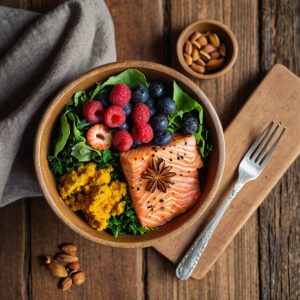 The key to sustained performance lies in understanding your body’s needs” particularly when it comes to fueling recovery.
The key to sustained performance lies in understanding your body’s needs” particularly when it comes to fueling recovery.
Focusing on antioxidant-rich foods is a fantastic strategy for long-term wellness and athletic success. These nutrients help combat inflammation, which is a natural response to intense training but can become detrimental if left unchecked.
Think of berries, blueberries, strawberries, raspberries” they’re packed with antioxidants that protect cells from damage. Similarly, leafy greens like spinach and kale are excellent sources too. These foods help repair muscle tissue after strenuous activity.
Sustaining wellness isn’t about quick fixes; it’s a long-term commitment to nourishing your body consistently. This means prioritizing whole, unprocessed foods whenever possible.
Incorporating foods like fatty fish, salmon and tuna provides omega-3 fatty acids which are powerful anti-inflammatory agents. And don’t forget about healthy fats from avocados and nuts” these contribute to overall health and support optimal performance.
Ultimately, fueling your body with antioxidant-rich, anti-inflammatory foods isn’t just about immediate results; it’s about building a foundation for sustained wellness and maximizing your athletic potential over the long haul.
Unlock Peak Potential: Fueling Your Body for Optimal Performance
Realizing peak athletic performance hinges on more than just grueling training schedules, it’s fundamentally about what fuels that effort.
The body of an athlete demands consistent, robust support, and consistently consuming antioxidant-rich foods can significantly reduce inflammation and bolster recovery. Strategic dietary choices, brimming with vibrant fruits, leafy greens, and colorful vegetables, offer a powerful defense against oxidative stress caused by intense physical exertion. These nutrients actively combat damaging free radicals, minimizing muscle soreness, accelerating healing, and ultimately maximizing training adaptations.
Prioritizing this type of nutrition isn’t just about feeling good; it’s about directly translating to improved endurance, faster recovery times, and a reduced risk of injury. A proactive approach to fueling the body with these potent compounds can truly elevate athletic capabilities.
Start nourishing your body today, embrace this powerful strategy and witness the transformative impact on your performance and overall well-being. Invest in your potential, one delicious, antioxidant-packed bite at a time.



